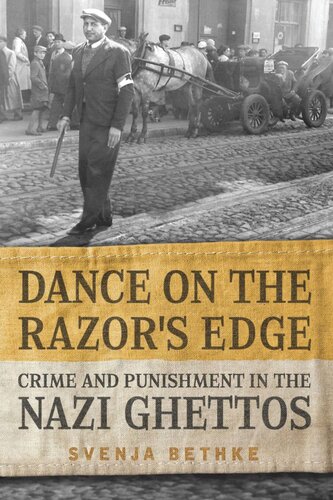

Most ebook files are in PDF format, so you can easily read them using various software such as Foxit Reader or directly on the Google Chrome browser.
Some ebook files are released by publishers in other formats such as .awz, .mobi, .epub, .fb2, etc. You may need to install specific software to read these formats on mobile/PC, such as Calibre.
Please read the tutorial at this link: https://ebookbell.com/faq
We offer FREE conversion to the popular formats you request; however, this may take some time. Therefore, right after payment, please email us, and we will try to provide the service as quickly as possible.
For some exceptional file formats or broken links (if any), please refrain from opening any disputes. Instead, email us first, and we will try to assist within a maximum of 6 hours.
EbookBell Team

4.3
58 reviews
Historians have mainly seen the ghettos established by the Nazis in German-occupied Eastern Europe as spaces marked by brutality, tyranny, and the systematic murder of the Jewish population. Drawing on examples from the Warsaw, Lodz, and Vilna ghettos, Dance on the Razor’s Edge explores how, in fact, highly improvised legal spheres emerged in these coerced and heterogeneous ghetto communities.
Looking at sources from multiple archives and countries, Svenja Bethke investigates how the Jewish Councils, set up on German orders and composed of ghetto inhabitants, formulated new definitions of criminal offenses and established legal institutions on their own initiative, as a desperate attempt to ensure the survival of the ghetto communities. Bethke explores how people under these circumstances tried to make sense of everyday lives that had been turned upside down, bringing with them pre-war notions of justice and morality, and she considers the extent to which this rupture led to new judgments on human behaviour. In doing so, Bethke aims to understand how people attempted to use their very limited scope for action in order to survive. Set against the background of a Holocaust historiography that often still seeks for clear categories of "good" and "bad" behaviours, Dance on the Razor’s Edge calls for a new understanding of the ghettos as complex communities in an unprecedented emergency situation.